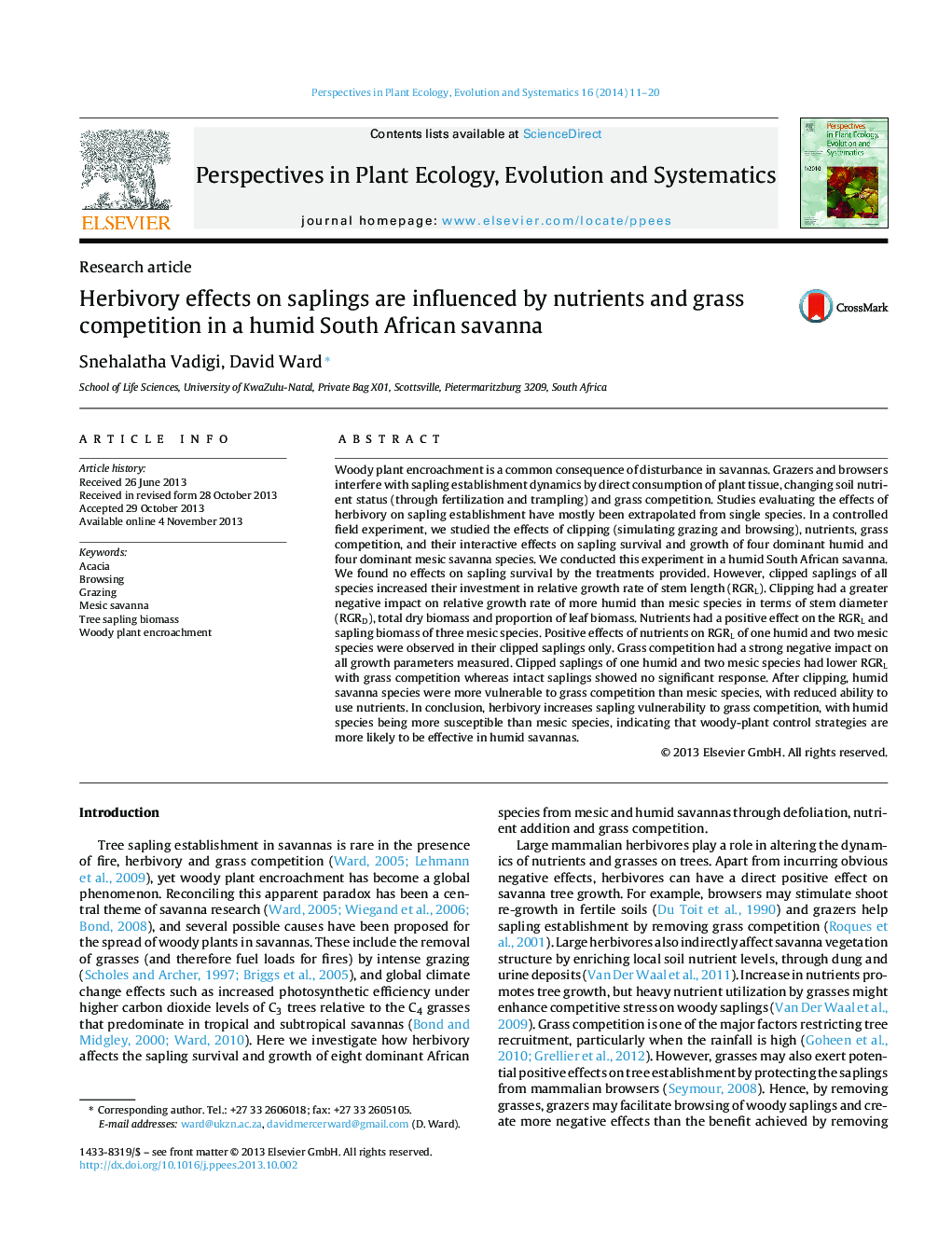| کد مقاله | کد نشریه | سال انتشار | مقاله انگلیسی | نسخه تمام متن |
|---|---|---|---|---|
| 4401004 | 1307044 | 2014 | 10 صفحه PDF | دانلود رایگان |
Woody plant encroachment is a common consequence of disturbance in savannas. Grazers and browsers interfere with sapling establishment dynamics by direct consumption of plant tissue, changing soil nutrient status (through fertilization and trampling) and grass competition. Studies evaluating the effects of herbivory on sapling establishment have mostly been extrapolated from single species. In a controlled field experiment, we studied the effects of clipping (simulating grazing and browsing), nutrients, grass competition, and their interactive effects on sapling survival and growth of four dominant humid and four dominant mesic savanna species. We conducted this experiment in a humid South African savanna. We found no effects on sapling survival by the treatments provided. However, clipped saplings of all species increased their investment in relative growth rate of stem length (RGRL). Clipping had a greater negative impact on relative growth rate of more humid than mesic species in terms of stem diameter (RGRD), total dry biomass and proportion of leaf biomass. Nutrients had a positive effect on the RGRL and sapling biomass of three mesic species. Positive effects of nutrients on RGRL of one humid and two mesic species were observed in their clipped saplings only. Grass competition had a strong negative impact on all growth parameters measured. Clipped saplings of one humid and two mesic species had lower RGRL with grass competition whereas intact saplings showed no significant response. After clipping, humid savanna species were more vulnerable to grass competition than mesic species, with reduced ability to use nutrients. In conclusion, herbivory increases sapling vulnerability to grass competition, with humid species being more susceptible than mesic species, indicating that woody-plant control strategies are more likely to be effective in humid savannas.
Journal: Perspectives in Plant Ecology, Evolution and Systematics - Volume 16, Issue 1, 20 February 2014, Pages 11–20
